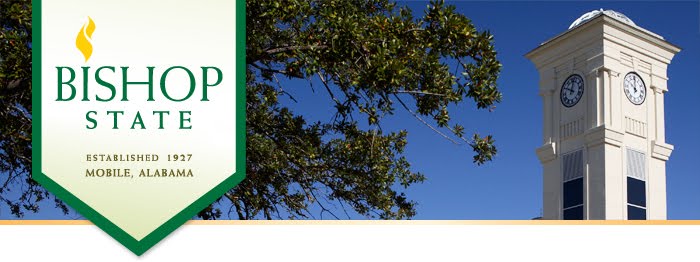LeShantel Wright has her sights set on working as a traveling nurse after she completes her
nursing degree at Bishop State and gains experience working in the field for a couple of years. She’ll have another ace in her pocket, however, that will put her ahead of many others vying for healthcare jobs today—she’s trained in
American Sign Language
“I know a lot of people who work in the medical field, and they talk about how difficult it is for a deaf patient to communicate with the nurses and doctors when an interpreter or family member is not available,” LeShantel said. “That’s got to be scary for the patient.”
LeShantel said she believes that becoming a sign language interpreter will give her an advantage in the healthcare job market.
“It’s a definite plus,’ she said. “There are not a lot of interpreters in the market, and there are a lot jobs out there where it would help if you could sign.”
Janice Rogers, ASL instructor at Bishop State, said anyone who wants to communicate with persons who are deaf or hard of hearing should take ASL. She also recommended that anyone working in public service, such as the legal system, law enforcement, fire department, etc, take ASL so they can better serve their customers until a qualified interpreter arrives.
Ms. Rogers said having more people trained in ASL is really about being better citizens and neighbors toward the deaf and hearing-impaired community.
“Wouldn’t it be absolutely wonderful (for a person who is deaf) to go into a store or restaurant and have someone assist you who could sign,” Ms. Rogers asked. “Deaf people have the same dreams, hopes, desires and experiences as hearing people. Wouldn’t it be great to be able to say ‘hello’ and be able to sign back and ask “how are you’?”
Ms. Rogers said there is a great need for interpreters locally and nationally.
“There are not enough qualified ASL interpreters to fill the many requests for interpreting services,” she said.
There are currently 25 students enrolled in the
ASL program at Bishop State, and hundreds of others have been trained in ASL throughout the years.
Registration for the Fall Semester at Bishop State is August 11-12.
